Healing the Sacred Divide
Making Peace with Ourselves, Each Other, and the World By Jean Benedict Raffa
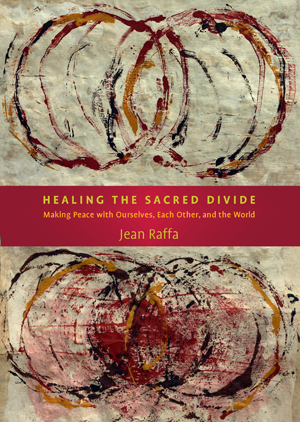
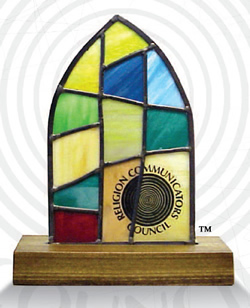 RCC Wilbur Award Winner!
RCC Wilbur Award Winner!
Retail/cover price: $18.95
Our price : $15.16
(You save $3.79!)
About this book:
Healing the Sacred Divide
Making Peace with Ourselves, Each Other, and the World
by Jean Benedict Raffa
"An important contribution to the continuing development of spirituality, bound to appeal to readers interested in gender roles, feminist approaches, and psychology." —Library Journal
Subjects: Spirituality, Psychology, Religion, Personal Transformation
6 x 9, paperback, French flaps
320 pages
ISBN 10: 1-936012-60-X
ISBN 13: 978-1-936012-60-2
Book Details
Congratulations to Jean Raffa on being selected by the Religion Communicators Council as winner of their 2013 Wilbur Award for nonfiction books.

"An important contribution to the continuing development of spirituality, bound to appeal to readers interested in gender roles, feminist approaches, and psychology." —Library Journal
"In the deepest recesses of our psyches a primal war is being waged between two compelling needs: our need to preserve the self-images our egos have so carefully constructed and our need to transcend the limitations our egos have imposed.” —Jean Raffa
Healing the Sacred Divide is timely — as seemingly irreconcilable beliefs and assumptions polarize our efforts to resolve complex domestic and international social issues, and spiritual crises abound. It offers a reprieve from unrelenting anxiety and guilt about never being good enough, and helps you connect intimately with what truly feels sacred to you.
Jean Raffa first explores several ways of thinking about God that express deep divisions in our own core and contribute to the dysfunctions of our culture. Then she brings forward an emerging way of thinking that may better serve our most urgent personal and social needs — one that helps us discover how to bridge differences and integrate the “other” in ourselves, our personal relationships, and our world at large.
More than any other book for the general public today, Healing the Sacred Divide explores the dynamic interplay of two crucial pairs of opposites: masculinity/femininity and psychology/religion. Author Jean Raffa maintains that we don’t find deep meaning through one-sided adherence to a set of “correct” beliefs, but by acknowledging divisions within ourselves to create mandorla consciousness. For her, the struggle to be fully conscious is the spiritual quest.
“Honoring the feminine principle,” she writes, “and integrating the opposites into our personalities, world views, and God-images is the next and necessary step toward increased consciousness . . . and the only lasting solution to individual and global strife.”
Publishers Weekly, July 16, 2012
Healing the Sacred Divide: Making Peace with Ourselves, Each Other, and the World
Jean Benedict Raffa. Larson Publications, $18.95 trade paper (320p) ISBN 978-1-936012-60-2
Raffa (Dream Theatres of the Soul) posits that until modern religions stop overemphasizing the masculine and repressing the feminine, they will contribute to individual and societal dysfunctions. Deeply influenced by both her own spiritual journey and the work of Carl Jung, Raffa examines the evolution of God-images throughout history and the relationship between our God-images and the war being waged in our psyches "between two compelling needs: our need to preserve the self-images our egos have so carefully constructed and our need to transcend the limitations our egos have imposed." She explores eight common ways of thinking about God that create problems for individuals and communities before urging the reader to adopt an integrated God-image that reflects both feminine and masculine principles. She then lays out nine "wisdom gifts," such as emotional integrity, that derive from an integrated God-image. Through honoring the feminine, she ultimately argues, we come to the spiritual realization that there is unity in all of creation and we take the necessary steps toward healing ourselves and achieving universal peace, justice, and love. Well-researched, this is rich with personal stories and reflections and supplemented with meditations and exercises that help the reader explore her own consciousness.
Library Journal, July 16, 2012
Raffa, Jean Benedict. Healing the Sacred Divide: Making Peace with Ourselves, Each Other, and the World. Larson. Jul. 2012. c.320p. ISBN 9781936012602. pap. $18.95. REL
Raffa (Bridge to Wholeness), inspired, in part, by the writings of Carl Jung, attempts to show here how certain preconceptions about God (masculine, tribal, childish, “like us,” gender-biased, external) have damaged us, our spirituality, and our relationship to the world. She suggests alternative understandings of God: holistic, light-giving, powerful, balanced, dialogic, and so on. Raffa’s conception is powerful and subtle, and goes well beyond a simple female-based spirituality; her execution suffers a little from trying to be very accessible. VERDICT An important contribution to the continuing development of spirituality, bound to appeal to readers interested in gender roles, feminist approaches, and psychology.
"A compelling journey through the human psyche and soul, both deeply personal and universal. Jean has done a brilliant job of illuminating where we are, how we got here, and how we can transcend the polarization and loneliness of this time by reconnecting with the sacred in its fullest, richest expression." —Margaret J. Wheatley, author of Leadership and the New Science and Turning to One Another
“In a world where reversing the trend towards polarization in politics, religion, and the genders is rapidly becoming crucial to our survival, Raffa clarifies the core issues and suggests solutions in a unique and refreshing style." —Margaret Paul, Ph.D., co-author, Healing Your Aloneness and co-creator of Inner Bonding
"Kudos to Ms. Raffa, whose straightforward style and personal approach accomplish what so many weightier and more ponderous works fail to capture: a guidebook to benefit every man and woman seeking to embody the spiritual ideal of a balanced, harmonious, and richly meaningful inner life. Healing the Sacred Divide is a contemporary, livable, vision of the Perennial Truth." —William Douglas Horden, author, The Toltec I Ching
“An absolute must-read for anyone looking to know themselves more deeply, emotionally and psychologically — especially for those who want to explore this depth in relation to the search to know God beyond the borders of religion (where so many of us suspect that God resides).” —Natasha Freeman, author, The Story of Q
"With Healing the Sacred Divide, Dr. Jean Raffa provides a roadmap for human development for the next millennium. Her crystal clear language distills a century of psychological thought into a highly readable primer for the average man or woman. Her book is both an indictment of modern religion as it is practiced by many, and a pointer toward its promise for the future. She has set a challenge for modern religions of every stripe to “create a new paradigm for humanity.” —Skip Conover, Founder, Archetype in Action™ Organization
“This fascinating book . . . both challenges and empowers us.” —John Dominic Crossan, author, The Power of Parable
“Jean Raffa invites us to join her in a radical path to spiritual and religious maturity. She stands in the lineage of Bishop John S. Spong and John Dominic Crossan and other progressive religious thinkers who are seeking to help build a bridge between the old forms of Christianity that are dying and the new vision that is being born. Healing the Sacred Divide will be a valuable resource for adult religious study groups and to all those interested in their own personal spiritual growth. It explores in depth our current religious and spiritual crises and seeks to assist us in our quest.
“As Jean notes ‘for many seekers in the West religion is about as nourishing as fast food take-out.’ Her new vision of religion is one which knows the values of the feminine as well as the masculine can be achieved by ‘making the unconscious conscious.’ Building on the work of religious scholars such as Zimmer and Eliade and the thought of Carl Jung she explores our current crisis in religion, which she sees as being due to our religious and culture’s overemphasis on the masculine ego both in our ourselves and our conception of God." —Dr. E.J. Tarbox, founder and longtime leader of the Highlands Institute for American Religious and Philosophical Thought
Conventional Version (see also Unconventional Version, next tab)
Jean Benedict Raffa is currently a writer and dream and study group leader. She has been a television producer and a college professor, and an instructor at the Disney Institute in Orlando and The Jung Center in Winter Park, FL. She is the author of three books, a workbook, numerous articles in professional journals, and a series of meditations and short stories for Augsburg Fortress Publisher. She has been cited in several biographical listings, including Outstanding Young Women of America, Who's Who in America, Who’s Who in American Education, and Who’s Who of American Women.
As coordinator of children’s programming for WFTV in Orlando, Jean wrote and produced an ACT award-winning children’s television show, “On the Go.” Her doctoral dissertation, which explored the values conveyed on television shows popular with children, was nominated for the best dissertation at the University of Florida and published as a resource for teaching television literacy. She has received awards from the Easter Seal Society of Central Florida and the Episcopal Church of the Good Shepherd in recognition of her contributions to her community.
Through formal and informal means, including a five-year Centerpoint course and an intensive at the Jung Institute in Zurich, Switzerland, Jean has been studying Jungian psychology and her own inner life for more than twenty years. Jean feels that her best qualification for writing The Sacred Marriage is that she is a deeply committed seeker who has been graced by life-changing, spiritually meaningful experiences — including a first kundalini awakening in 1980. These produced significant personal growth and led her to her current areas of specialty. They also have given her an objectivity about herself and sacred traditions that helps her see the universal truths underlying one-sided religious thinking.
Since 1992, Jean has made more than a hundred program appearances, including television, radio, and Internet interviews, classes, workshops, and book signings. Her book The Bridge to Wholeness: A Feminine Alternative to the Hero Myth (originally by Luramedia in 1992; later by Innisfree Press, Inc., then Inner Ocean of Maui) was nominated for the Benjamin Franklin Award for best psychology book of 1992. Reviewed in several journals and featured on reading lists of university courses, it was also picked by the Isabella catalogue as a must-read for seeking women.
Dream Theatres of the Soul: Empowering the Feminine through Jungian Dreamwork (Innisfree Press, Inc., 1994) has been used in dreamwork courses throughout the country and has been included in Amazon.com’s list of the Top 100 Best Selling Dream Books, and TCM’s book list of Human Resources for Organizational Development.
Jean is married with two adult children — a daughter with a Ph.D. in Marriage and Family Therapy and a son with a Ph.D. in Economics — and five grandchildren. She currently lives in Maitland, Florida, with her economist husband, Fred.
Unconventional Version
As a sensitive and spiritually oriented young woman, I looked to my religion for confirmation that I was acceptable. But after decades of trying to perfect myself according to its standards, I finally realized it didn’t have the slightest idea how to help me come to terms with my authentic self. By the time of a kundalini awakening in 1980, I already had been re-prioritizing my values and questioning my beliefs for several years.
Then it was as if what I now call Serpent Mother ripped a gaping hole in the boundary between my conscious and unconscious selves. A deep abyss filled with dragons opened up beneath my feet, and I spiraled headlong into the darkness on an underworld journey.
Painfully aware of my dogged devotion to all the heroes and authorities in my life from whom I had expected so much but received so little, I could no longer go to church without getting a stomach ache. So I stopped going.
I wasn’t giving up on God. I was just trying to wake up to the realities of my life in the Now instead of numbing out over beliefs and rituals that had lost their meaning, indulging in fantasies of future glory, and seeking approval from religious authorities. This was about claiming my own authority while I was still lucky enough to be living.
Along the way I had made a pretty good go at being the perfect teacher, the perfect mother, the perfect homemaker, the perfect community volunteer, and eventually the perfect television producer and college professor. But from this point forward I began to see and heal the toxic consequences in myself of an obsessive identification with masculine values.
Redirecting my focus from the outer world to the inner, and from the past and future to the present, I hoped to accomplish two things: First, I needed a reprieve from the unrelenting burden of anxiety and guilt about never being good enough. Second, I craved a more intimate connection with what truly felt sacred to me: that which inspires, is personally meaningful, elicits awe and comfort, fuels my energy instead of draining it, and helps me become a better, more authentic person.
The same year that I discovered the perfectionism of my inner Spiritual Bully I also met my Heroine Addict — another inevitable outcome of powerful forces at work in me represented by the “Lone Ranger” dream presented in the Prologue of this book. I began to see how I was addicted to being heroic instead of simply being myself. Her attitudes and motivations were so integral to my personality, and her behaviors so habitual in every aspect of my life, that I was until then no more aware of her than of the beating of my wounded heart. But she was as real as my heart, and by 2005 I had accumulated enough data from my dreams to prepare the way for her dramatic debut.
I found the tools I needed for developing these discoveries in Jungian psychology. Bible study had shown me my spiritual goals, but memorization and willpower had not helped me attain them. What did help was participating in various kinds of mental training that provide greater self-knowledge and help me tame my dragons. Along with my writing and Jungian studies I regularly practice dreamwork, meditation, and yoga. To this date, dreamwork and writing continue to be my primary spiritual practices.
And have they helped? Yes, indeed. They never fail to heighten my awareness of my connection with the Sacred. My creativity began to blossom shortly after I began them. And the self-knowledge they’ve brought has been more helpful than I can possibly convey.
Now I know that this is how we find God: by finding ourselves. This is how we honor God: by honoring ourselves. This is how we listen to God: by listening to ourselves. This is how we change the world: by balancing opposing energies and opening to change. This is how we Heal the Sacred Divide within ourselves, in our personal and work relationships, and in the many complex ways we live together day-by-day on this beautiful and tortured planet we're blessed to share.
Healing the Sacred Divide is non-fiction. Intended for the non-fundamentalist, spiritually oriented general public, it will appeal to theologians, religious leaders, open-minded Christian, Jewish, and Muslim lay persons and study groups, psychologists, psychotherapists and their clients, college professors, students, and all serious readers of books on religion, spirituality, psychology, philosophy, women’s studies, gender studies, and self-help.
The author deeply believes that humanity’s noblest dream is universal peace, justice, and love. She is convinced that this dream cannot be fulfilled without individual psychological and spiritual maturity, and that doing the necessary inner work to make this happen is a spiritual path that is relevant for every seeker regardless of religious affiliation. With Healing the Sacred Divide, she invites readers to join her in discovering a radical middle path to sacred awareness.
Written by a former college professor, Healing the Sacred Divide is suitable as supplementary reading in courses in Women’s Studies, Gender Studies, Psychology, Philosophy, and Religious Studies. The author's previous books have been and are being used in a variety of classroom settings. For example, The Bridge to Wholeness is studied in a senior seminar titled "Heroism and the Human Spirit" at Lemoyne University and was required reading in a senior honors course on the Goddess in Literature, History, and Myth at the University of Central Florida. Dream Theatres of the Soul has been used in the Continuing Education program at Emory University and several workshops and private dream groups.
From the author:
The immediate and long-term life-enhancing benefits of reading Healing the Sacred Divide and applying its messages are many.
In the largest overview, readers learn about what I call nine gifts of spiritual wisdom: holistic perception, transforming light, acceptance of the shadow, emotional integrity, partnership, balance, sovereignty, meaning, and mandorla consciousness.
Specifically, as just a few examples:
-
Recognizing that you have differing associations, and emotional reactions rooted in them, expands self-awareness, a primary goal of the book
Understanding my “25 Symptoms of Emotional Ignorance” helps you
o become emotionally aware in a nuanced way
o end the self-repression that prevents you from discovering your
genius and developing your full potential
o stop being emotionally inaccessible (to yourself and others)
o start showing up for emotionally real and satisfying relationships
o stop unconsciously wounding other people
o break the cycle of unwittingly passing your unconscious emotions on
to the next generation
o make real progress in your spiritual aspirations
o properly appreciate the contributions others make to your success
o create healthy, lasting relationships
o develop compassion
o live with the fullness and harmony you yearn for
-
Combining different brain functions conventionally considered “masculine” or “feminine”
o brings more psychological satisfaction and spiritual meaning than
any one way of thinking does by itself
o leads to integrating logic and emotion
o prompts extraordinary creativity in music, art, literature, speech,
science, and everyday living.
-
Seeing what causes you to fall short of (or even betray) your conscious ideals can help you
o replace blame with understanding, hatred with tolerance, fear with
trust
o awaken and develop a personal ethic that expresses your own
conscience and is not prescribed or enforced by anyone else
Click here to see a podcast interview of Jean, made during the 2012 Book Expo America in New York City.
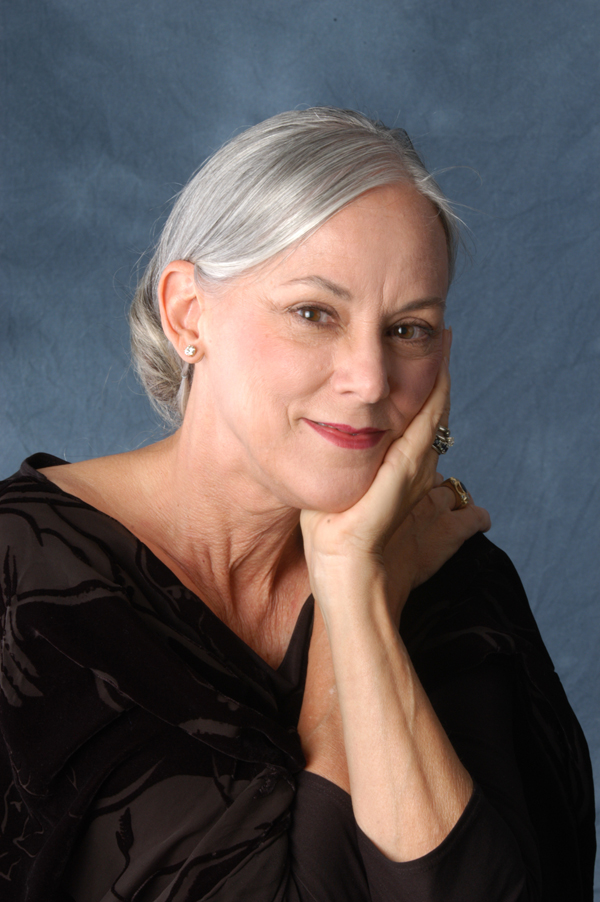
Jean Benedict Raffa is currently a writer and dream and study group leader. She has been a television producer and a college professor, and an instructor at the Disney Institute in Orlando and The Jung Center in Winter Park, FL. She is the author of three books, a workbook, numerous articles in professional journals, and a series of meditations and short stories for Augsburg Fortress Publisher. She has been cited in several biographical listings, including Outstanding Young Women of America, Who's Who in America, Who’s Who in American Education, and Who’s Who of American Women.
Through formal and informal means, including a five-year Centerpoint course and an intensive at the Jung Institute in Zurich, Switzerland, Jean has been studying Jungian psychology and her own inner life for more than twenty years. Jean feels that her best qualification for writing Healiing the Sacred Divide is that she is a deeply committed seeker who has been graced by life-changing, spiritually meaningful experiences — including a first kundalini awakening in 1980. These produced significant personal growth and led her to her current areas of specialty. They also have given her an objectivity about herself and sacred traditions that helps her see the universal truths underlying one-sided religious thinking.
For more information about Jean, see the Conventional Version and Unconventional Version tabs above.
Book Details
Congratulations to Jean Raffa on being selected by the Religion Communicators Council as winner of their 2013 Wilbur Award for nonfiction books.

"An important contribution to the continuing development of spirituality, bound to appeal to readers interested in gender roles, feminist approaches, and psychology." —Library Journal
"In the deepest recesses of our psyches a primal war is being waged between two compelling needs: our need to preserve the self-images our egos have so carefully constructed and our need to transcend the limitations our egos have imposed.” —Jean Raffa
Healing the Sacred Divide is timely — as seemingly irreconcilable beliefs and assumptions polarize our efforts to resolve complex domestic and international social issues, and spiritual crises abound. It offers a reprieve from unrelenting anxiety and guilt about never being good enough, and helps you connect intimately with what truly feels sacred to you.
Jean Raffa first explores several ways of thinking about God that express deep divisions in our own core and contribute to the dysfunctions of our culture. Then she brings forward an emerging way of thinking that may better serve our most urgent personal and social needs — one that helps us discover how to bridge differences and integrate the “other” in ourselves, our personal relationships, and our world at large.
More than any other book for the general public today, Healing the Sacred Divide explores the dynamic interplay of two crucial pairs of opposites: masculinity/femininity and psychology/religion. Author Jean Raffa maintains that we don’t find deep meaning through one-sided adherence to a set of “correct” beliefs, but by acknowledging divisions within ourselves to create mandorla consciousness. For her, the struggle to be fully conscious is the spiritual quest.
“Honoring the feminine principle,” she writes, “and integrating the opposites into our personalities, world views, and God-images is the next and necessary step toward increased consciousness . . . and the only lasting solution to individual and global strife.”
Publishers Weekly, July 16, 2012
Healing the Sacred Divide: Making Peace with Ourselves, Each Other, and the World
Jean Benedict Raffa. Larson Publications, $18.95 trade paper (320p) ISBN 978-1-936012-60-2
Raffa (Dream Theatres of the Soul) posits that until modern religions stop overemphasizing the masculine and repressing the feminine, they will contribute to individual and societal dysfunctions. Deeply influenced by both her own spiritual journey and the work of Carl Jung, Raffa examines the evolution of God-images throughout history and the relationship between our God-images and the war being waged in our psyches "between two compelling needs: our need to preserve the self-images our egos have so carefully constructed and our need to transcend the limitations our egos have imposed." She explores eight common ways of thinking about God that create problems for individuals and communities before urging the reader to adopt an integrated God-image that reflects both feminine and masculine principles. She then lays out nine "wisdom gifts," such as emotional integrity, that derive from an integrated God-image. Through honoring the feminine, she ultimately argues, we come to the spiritual realization that there is unity in all of creation and we take the necessary steps toward healing ourselves and achieving universal peace, justice, and love. Well-researched, this is rich with personal stories and reflections and supplemented with meditations and exercises that help the reader explore her own consciousness.
Library Journal, July 16, 2012
Raffa, Jean Benedict. Healing the Sacred Divide: Making Peace with Ourselves, Each Other, and the World. Larson. Jul. 2012. c.320p. ISBN 9781936012602. pap. $18.95. REL
Raffa (Bridge to Wholeness), inspired, in part, by the writings of Carl Jung, attempts to show here how certain preconceptions about God (masculine, tribal, childish, “like us,” gender-biased, external) have damaged us, our spirituality, and our relationship to the world. She suggests alternative understandings of God: holistic, light-giving, powerful, balanced, dialogic, and so on. Raffa’s conception is powerful and subtle, and goes well beyond a simple female-based spirituality; her execution suffers a little from trying to be very accessible. VERDICT An important contribution to the continuing development of spirituality, bound to appeal to readers interested in gender roles, feminist approaches, and psychology.
"A compelling journey through the human psyche and soul, both deeply personal and universal. Jean has done a brilliant job of illuminating where we are, how we got here, and how we can transcend the polarization and loneliness of this time by reconnecting with the sacred in its fullest, richest expression." —Margaret J. Wheatley, author of Leadership and the New Science and Turning to One Another
“In a world where reversing the trend towards polarization in politics, religion, and the genders is rapidly becoming crucial to our survival, Raffa clarifies the core issues and suggests solutions in a unique and refreshing style." —Margaret Paul, Ph.D., co-author, Healing Your Aloneness and co-creator of Inner Bonding
"Kudos to Ms. Raffa, whose straightforward style and personal approach accomplish what so many weightier and more ponderous works fail to capture: a guidebook to benefit every man and woman seeking to embody the spiritual ideal of a balanced, harmonious, and richly meaningful inner life. Healing the Sacred Divide is a contemporary, livable, vision of the Perennial Truth." —William Douglas Horden, author, The Toltec I Ching
“An absolute must-read for anyone looking to know themselves more deeply, emotionally and psychologically — especially for those who want to explore this depth in relation to the search to know God beyond the borders of religion (where so many of us suspect that God resides).” —Natasha Freeman, author, The Story of Q
"With Healing the Sacred Divide, Dr. Jean Raffa provides a roadmap for human development for the next millennium. Her crystal clear language distills a century of psychological thought into a highly readable primer for the average man or woman. Her book is both an indictment of modern religion as it is practiced by many, and a pointer toward its promise for the future. She has set a challenge for modern religions of every stripe to “create a new paradigm for humanity.” —Skip Conover, Founder, Archetype in Action™ Organization
“This fascinating book . . . both challenges and empowers us.” —John Dominic Crossan, author, The Power of Parable
“Jean Raffa invites us to join her in a radical path to spiritual and religious maturity. She stands in the lineage of Bishop John S. Spong and John Dominic Crossan and other progressive religious thinkers who are seeking to help build a bridge between the old forms of Christianity that are dying and the new vision that is being born. Healing the Sacred Divide will be a valuable resource for adult religious study groups and to all those interested in their own personal spiritual growth. It explores in depth our current religious and spiritual crises and seeks to assist us in our quest.
“As Jean notes ‘for many seekers in the West religion is about as nourishing as fast food take-out.’ Her new vision of religion is one which knows the values of the feminine as well as the masculine can be achieved by ‘making the unconscious conscious.’ Building on the work of religious scholars such as Zimmer and Eliade and the thought of Carl Jung she explores our current crisis in religion, which she sees as being due to our religious and culture’s overemphasis on the masculine ego both in our ourselves and our conception of God." —Dr. E.J. Tarbox, founder and longtime leader of the Highlands Institute for American Religious and Philosophical Thought
Conventional Version (see also Unconventional Version, next tab)
Jean Benedict Raffa is currently a writer and dream and study group leader. She has been a television producer and a college professor, and an instructor at the Disney Institute in Orlando and The Jung Center in Winter Park, FL. She is the author of three books, a workbook, numerous articles in professional journals, and a series of meditations and short stories for Augsburg Fortress Publisher. She has been cited in several biographical listings, including Outstanding Young Women of America, Who's Who in America, Who’s Who in American Education, and Who’s Who of American Women.
As coordinator of children’s programming for WFTV in Orlando, Jean wrote and produced an ACT award-winning children’s television show, “On the Go.” Her doctoral dissertation, which explored the values conveyed on television shows popular with children, was nominated for the best dissertation at the University of Florida and published as a resource for teaching television literacy. She has received awards from the Easter Seal Society of Central Florida and the Episcopal Church of the Good Shepherd in recognition of her contributions to her community.
Through formal and informal means, including a five-year Centerpoint course and an intensive at the Jung Institute in Zurich, Switzerland, Jean has been studying Jungian psychology and her own inner life for more than twenty years. Jean feels that her best qualification for writing The Sacred Marriage is that she is a deeply committed seeker who has been graced by life-changing, spiritually meaningful experiences — including a first kundalini awakening in 1980. These produced significant personal growth and led her to her current areas of specialty. They also have given her an objectivity about herself and sacred traditions that helps her see the universal truths underlying one-sided religious thinking.
Since 1992, Jean has made more than a hundred program appearances, including television, radio, and Internet interviews, classes, workshops, and book signings. Her book The Bridge to Wholeness: A Feminine Alternative to the Hero Myth (originally by Luramedia in 1992; later by Innisfree Press, Inc., then Inner Ocean of Maui) was nominated for the Benjamin Franklin Award for best psychology book of 1992. Reviewed in several journals and featured on reading lists of university courses, it was also picked by the Isabella catalogue as a must-read for seeking women.
Dream Theatres of the Soul: Empowering the Feminine through Jungian Dreamwork (Innisfree Press, Inc., 1994) has been used in dreamwork courses throughout the country and has been included in Amazon.com’s list of the Top 100 Best Selling Dream Books, and TCM’s book list of Human Resources for Organizational Development.
Jean is married with two adult children — a daughter with a Ph.D. in Marriage and Family Therapy and a son with a Ph.D. in Economics — and five grandchildren. She currently lives in Maitland, Florida, with her economist husband, Fred.
Unconventional Version
As a sensitive and spiritually oriented young woman, I looked to my religion for confirmation that I was acceptable. But after decades of trying to perfect myself according to its standards, I finally realized it didn’t have the slightest idea how to help me come to terms with my authentic self. By the time of a kundalini awakening in 1980, I already had been re-prioritizing my values and questioning my beliefs for several years.
Then it was as if what I now call Serpent Mother ripped a gaping hole in the boundary between my conscious and unconscious selves. A deep abyss filled with dragons opened up beneath my feet, and I spiraled headlong into the darkness on an underworld journey.
Painfully aware of my dogged devotion to all the heroes and authorities in my life from whom I had expected so much but received so little, I could no longer go to church without getting a stomach ache. So I stopped going.
I wasn’t giving up on God. I was just trying to wake up to the realities of my life in the Now instead of numbing out over beliefs and rituals that had lost their meaning, indulging in fantasies of future glory, and seeking approval from religious authorities. This was about claiming my own authority while I was still lucky enough to be living.
Along the way I had made a pretty good go at being the perfect teacher, the perfect mother, the perfect homemaker, the perfect community volunteer, and eventually the perfect television producer and college professor. But from this point forward I began to see and heal the toxic consequences in myself of an obsessive identification with masculine values.
Redirecting my focus from the outer world to the inner, and from the past and future to the present, I hoped to accomplish two things: First, I needed a reprieve from the unrelenting burden of anxiety and guilt about never being good enough. Second, I craved a more intimate connection with what truly felt sacred to me: that which inspires, is personally meaningful, elicits awe and comfort, fuels my energy instead of draining it, and helps me become a better, more authentic person.
The same year that I discovered the perfectionism of my inner Spiritual Bully I also met my Heroine Addict — another inevitable outcome of powerful forces at work in me represented by the “Lone Ranger” dream presented in the Prologue of this book. I began to see how I was addicted to being heroic instead of simply being myself. Her attitudes and motivations were so integral to my personality, and her behaviors so habitual in every aspect of my life, that I was until then no more aware of her than of the beating of my wounded heart. But she was as real as my heart, and by 2005 I had accumulated enough data from my dreams to prepare the way for her dramatic debut.
I found the tools I needed for developing these discoveries in Jungian psychology. Bible study had shown me my spiritual goals, but memorization and willpower had not helped me attain them. What did help was participating in various kinds of mental training that provide greater self-knowledge and help me tame my dragons. Along with my writing and Jungian studies I regularly practice dreamwork, meditation, and yoga. To this date, dreamwork and writing continue to be my primary spiritual practices.
And have they helped? Yes, indeed. They never fail to heighten my awareness of my connection with the Sacred. My creativity began to blossom shortly after I began them. And the self-knowledge they’ve brought has been more helpful than I can possibly convey.
Now I know that this is how we find God: by finding ourselves. This is how we honor God: by honoring ourselves. This is how we listen to God: by listening to ourselves. This is how we change the world: by balancing opposing energies and opening to change. This is how we Heal the Sacred Divide within ourselves, in our personal and work relationships, and in the many complex ways we live together day-by-day on this beautiful and tortured planet we're blessed to share.
Healing the Sacred Divide is non-fiction. Intended for the non-fundamentalist, spiritually oriented general public, it will appeal to theologians, religious leaders, open-minded Christian, Jewish, and Muslim lay persons and study groups, psychologists, psychotherapists and their clients, college professors, students, and all serious readers of books on religion, spirituality, psychology, philosophy, women’s studies, gender studies, and self-help.
The author deeply believes that humanity’s noblest dream is universal peace, justice, and love. She is convinced that this dream cannot be fulfilled without individual psychological and spiritual maturity, and that doing the necessary inner work to make this happen is a spiritual path that is relevant for every seeker regardless of religious affiliation. With Healing the Sacred Divide, she invites readers to join her in discovering a radical middle path to sacred awareness.
Written by a former college professor, Healing the Sacred Divide is suitable as supplementary reading in courses in Women’s Studies, Gender Studies, Psychology, Philosophy, and Religious Studies. The author's previous books have been and are being used in a variety of classroom settings. For example, The Bridge to Wholeness is studied in a senior seminar titled "Heroism and the Human Spirit" at Lemoyne University and was required reading in a senior honors course on the Goddess in Literature, History, and Myth at the University of Central Florida. Dream Theatres of the Soul has been used in the Continuing Education program at Emory University and several workshops and private dream groups.
From the author:
The immediate and long-term life-enhancing benefits of reading Healing the Sacred Divide and applying its messages are many.
In the largest overview, readers learn about what I call nine gifts of spiritual wisdom: holistic perception, transforming light, acceptance of the shadow, emotional integrity, partnership, balance, sovereignty, meaning, and mandorla consciousness.
Specifically, as just a few examples:
-
Recognizing that you have differing associations, and emotional reactions rooted in them, expands self-awareness, a primary goal of the book
Understanding my “25 Symptoms of Emotional Ignorance” helps you
o become emotionally aware in a nuanced way
o end the self-repression that prevents you from discovering your
genius and developing your full potential
o stop being emotionally inaccessible (to yourself and others)
o start showing up for emotionally real and satisfying relationships
o stop unconsciously wounding other people
o break the cycle of unwittingly passing your unconscious emotions on
to the next generation
o make real progress in your spiritual aspirations
o properly appreciate the contributions others make to your success
o create healthy, lasting relationships
o develop compassion
o live with the fullness and harmony you yearn for
-
Combining different brain functions conventionally considered “masculine” or “feminine”
o brings more psychological satisfaction and spiritual meaning than
any one way of thinking does by itself
o leads to integrating logic and emotion
o prompts extraordinary creativity in music, art, literature, speech,
science, and everyday living.
-
Seeing what causes you to fall short of (or even betray) your conscious ideals can help you
o replace blame with understanding, hatred with tolerance, fear with
trust
o awaken and develop a personal ethic that expresses your own
conscience and is not prescribed or enforced by anyone else
Click here to see a podcast interview of Jean, made during the 2012 Book Expo America in New York City.
About Jean Benedict Raffa

Jean Benedict Raffa is currently a writer and dream and study group leader. She has been a television producer and a college professor, and an instructor at the Disney Institute in Orlando and The Jung Center in Winter Park, FL. She is the author of three books, a workbook, numerous articles in professional journals, and a series of meditations and short stories for Augsburg Fortress Publisher. She has been cited in several biographical listings, including Outstanding Young Women of America, Who's Who in America, Who’s Who in American Education, and Who’s Who of American Women.
Through formal and informal means, including a five-year Centerpoint course and an intensive at the Jung Institute in Zurich, Switzerland, Jean has been studying Jungian psychology and her own inner life for more than twenty years. Jean feels that her best qualification for writing Healiing the Sacred Divide is that she is a deeply committed seeker who has been graced by life-changing, spiritually meaningful experiences — including a first kundalini awakening in 1980. These produced significant personal growth and led her to her current areas of specialty. They also have given her an objectivity about herself and sacred traditions that helps her see the universal truths underlying one-sided religious thinking.
For more information about Jean, see the Conventional Version and Unconventional Version tabs above.

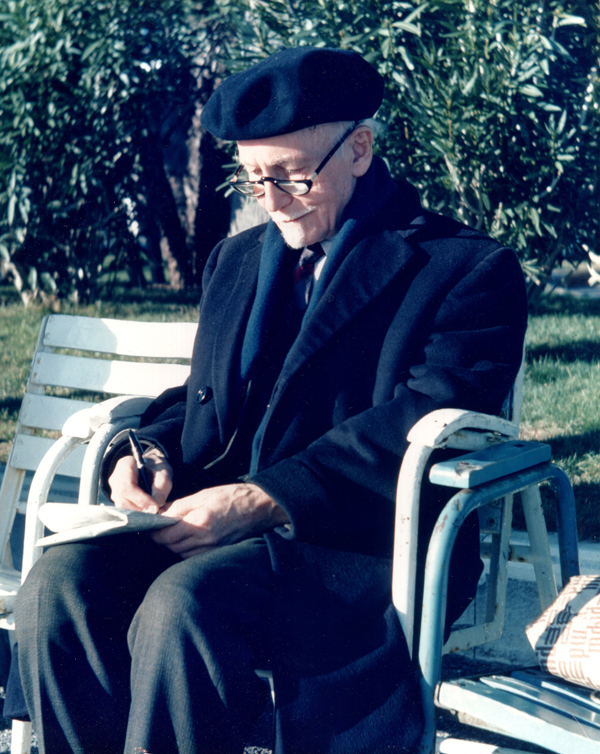
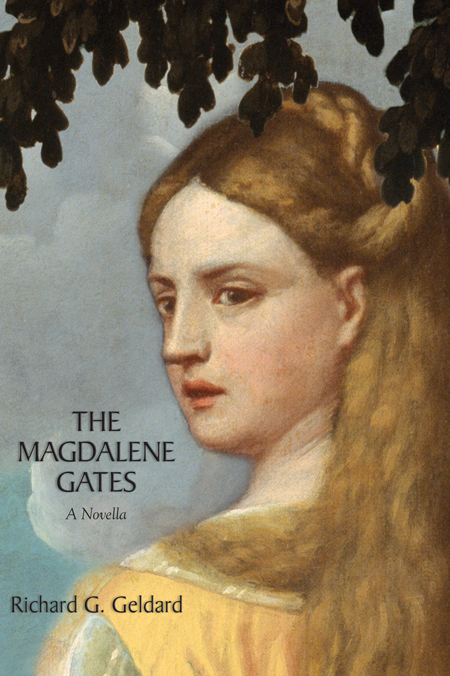
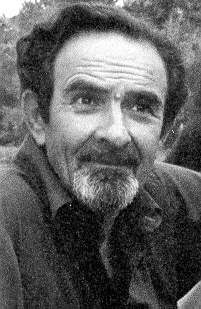
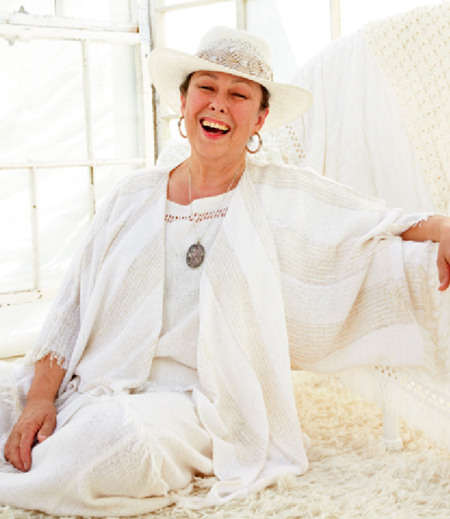
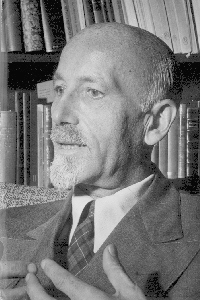
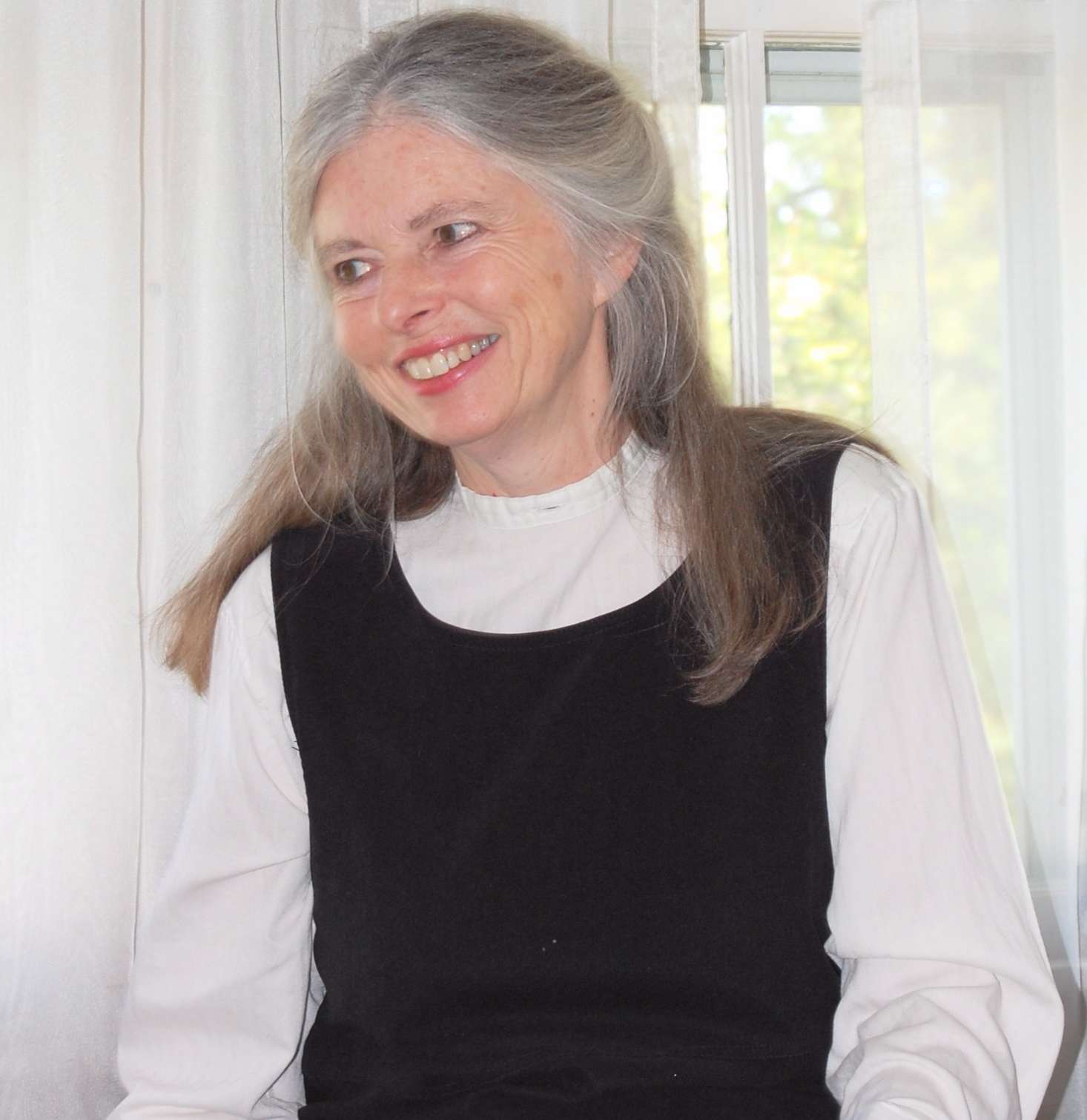
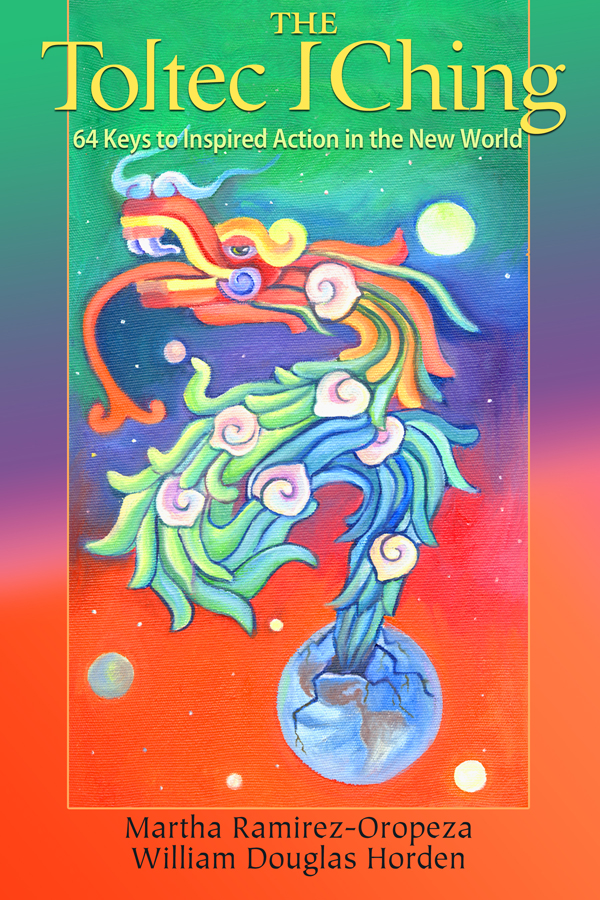
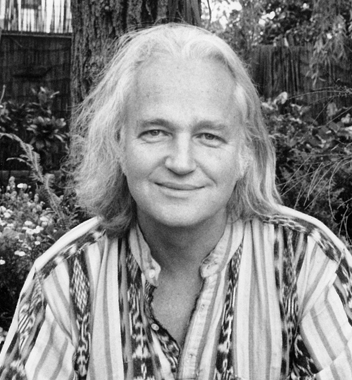
.jpg)
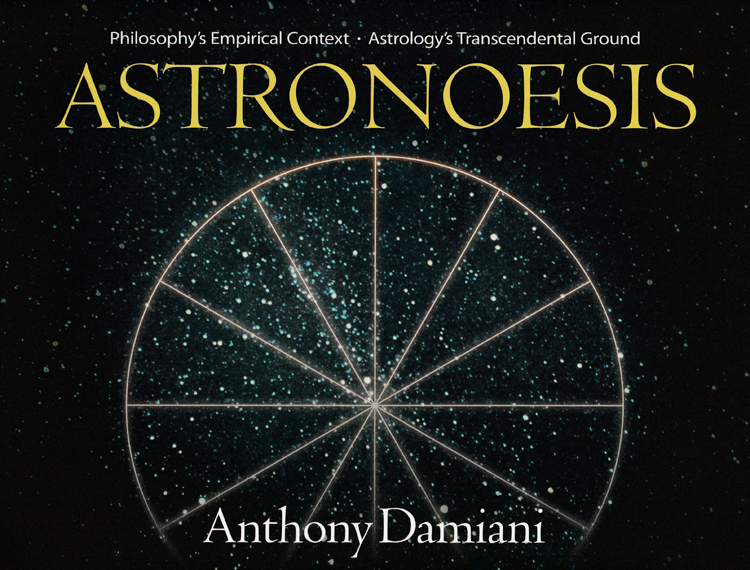
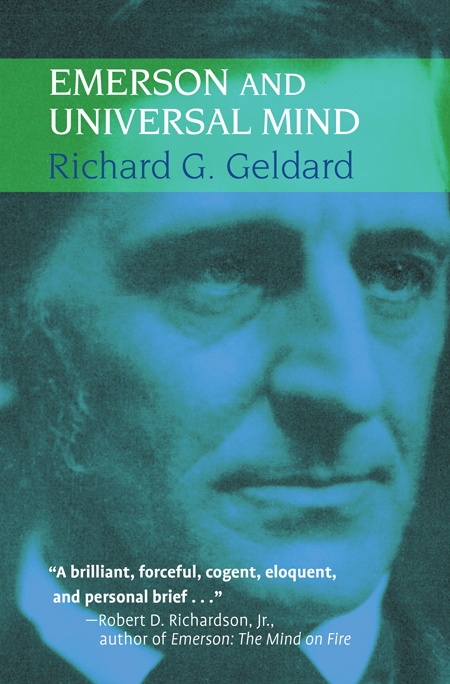
.jpg)
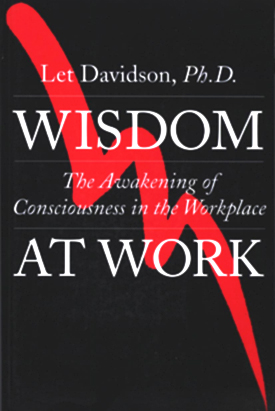
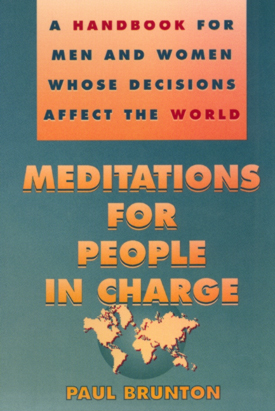
.jpg)
.jpg)